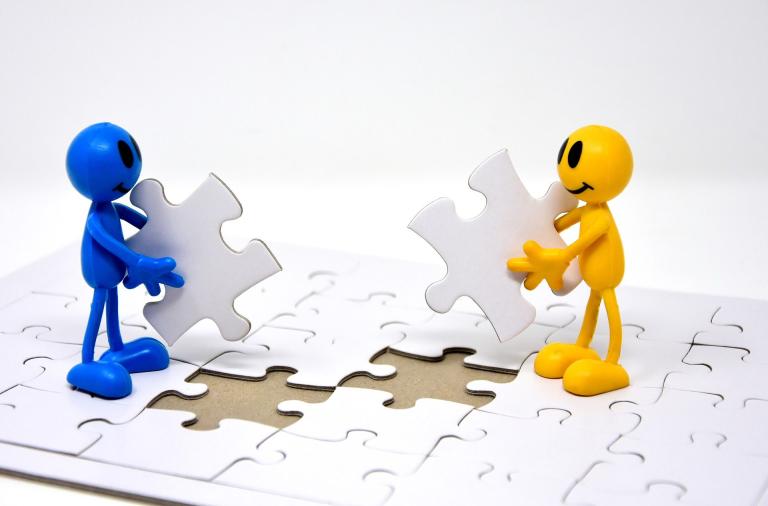 It was time for my routine mammogram. The center’s waiting area was not where I expected to read about how porn could help me! But a magazine was placed (interestingly) next to a Bible on a small table. Curious by the cover story, I picked up the magazine and began flipping through the pages. I stopped on an article about why men like porn and why I should too!
It was time for my routine mammogram. The center’s waiting area was not where I expected to read about how porn could help me! But a magazine was placed (interestingly) next to a Bible on a small table. Curious by the cover story, I picked up the magazine and began flipping through the pages. I stopped on an article about why men like porn and why I should too!
There I am, sitting in a small waiting area for a medical procedure. Some of the women are there for serious reasons like breast cancer and my reading option includes how porn could be good for me! The article suggested I embrace porn. Why? Because it would help me and my relationship. I should simply go home, tell my husband, “Hey, let’s introduce a little porn into our relationship to rev up the romance.” This advice from a guy named Jake. No credentials! Just Jake’s good idea.
Jake needs to meet my two researcher friends who are in a constant struggle to get anything related to the down side of porn published despite their evidence of its destructive effects on health and relationships. They are blocked in their publishing by university colleagues who refuse to acknowledge any negativity of porn use. The bias’ motive is to normalize it and even suggest, like Jake, that it actually helps relationships. But follow the money. The porn industry reaps billions. Lots of people profit from appeals to our sensual desires. And many are caught in the grip of porn themselves. Why would they want to espouse a value that goes against their pleasure principle? Do they care what the fallout to your relationship will be?
Researchers need to get out of their labs and talk to couples whose lives have been shattered because of these irresponsible purveyors. Sit with me for a few hours of therapy and listen to the women whose marriages and relationships were destroyed because of a “little” pornography. Unlike Jake, I have experienced decades of therapy with couples. I have yet to hear how porn ever really improved a troubled relationship. More often I hear how its use progresses to bizarre and uncomfortable requests by partners, how people feel objectified, how erectile dysfunction develops and how–as with drug addiction–more and more is needed to become aroused.
Viewing porn causes the brain to rewire and pump out chemicals to form new neural pathways. The more you use those neural pathway, the stronger they become. And those pathways are tied to the reward centers of the brain, providing you with pleasure. The pleasure is remembered and craved. But when you stop using porn, the pathway begins to lose traction and the brain can reboot. You have to stop viewing it –abstinence is the only way out on this one.
Matthew Christman, MD, a urologist at the Naval Medical Center San Diego, California and his colleague, Dr. Berger surveyed active duty men and women to see if there was an association between addiction to pornography and sexual dysfunction. What they found was that the incidence of sexual dysfunction increased in men significantly during the use of pornography.
And Dr. Christman also attests to the reality than mental health clinicians see this correlation of porn and sexual dysfunction in their offices on a regular basis. Once the pornography is removed, the sex life improves and the related sexual dysfunction disappears. So, as a clinician, when I hear about sexual dysfunction, I check for pornography use.
Porn is addictive despite what you may read. First there is fantasy, then ritual, then acting out. Then a thirst for more including more novelty. Its easy access online makes it available 24/7. Sorry Jake, but using porn “a little” simply doesn’t happen! It’s like using a little cocaine. The hit is pleasurable and you want more. I refuse to encourage men and women to play with fire and then promise they won’t get burned.
If you wonder about the real devastation that porn has on a relationship, I encourage you to read my friend, Debbie Laaser’s book, Shattered Vows–a first hand account of how a Christian woman faced pornography in her marriage yet stayed with her husband through the healing process. Debbie stayed but not all women do nor should they be expected to stay. And not all men get healing. And that is the sad part of Jake’s advice. Most marriages are shattered by pornography and are never repaired. So to encourage anyone to embrace something that reduces sex to physical acts while objectifying women is unconscionable.
The Apostle Paul says all things are lawful but not all things are beneficial. Meaning, God gave us freedom to do as we will, but with that freedom comes responsibility, accountability and consequences that need to be considered.


